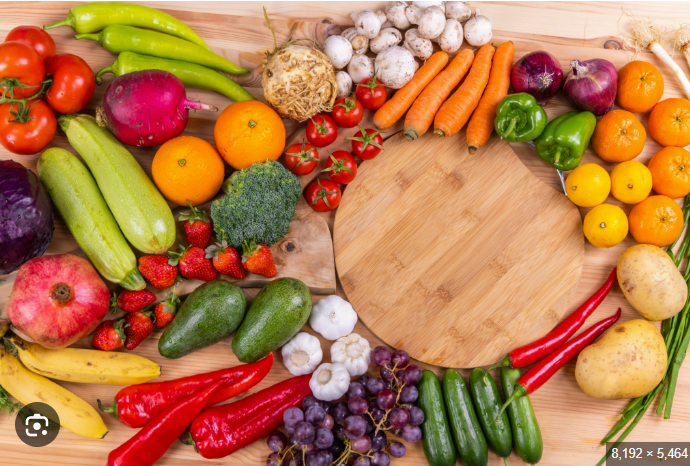
In recent years, science has shed new light on a fascinating and powerful relationship: the gut-brain connection. This intricate link between our digestive system and our brain plays a major role in influencing our mood, mental clarity, and overall well-being. While we’ve long understood that what we eat affects our physical health, researchers are now discovering that our food choices also have profound effects on our mental state.
If you’ve ever experienced a “gut feeling” or noticed how certain meals leave you energized while others make you sluggish or foggy, you’re already familiar with this connection — even if you didn’t know the biology behind it. This article explores the science behind the gut-brain axis, the role of gut bacteria, and the foods that can help sharpen your mental clarity and support a balanced mood.
Understanding the Gut-Brain Axis
The gut-brain axis refers to the bidirectional communication between the gastrointestinal tract and the brain. This communication occurs through several pathways, including the vagus nerve, the immune system, hormones, and the gut microbiome.
- Vagus Nerve: The longest cranial nerve, the vagus nerve connects the brainstem to the abdomen. It sends signals both ways, relaying information about hunger, stress, and digestive status.
- Neurotransmitters: Many of the same neurotransmitters that influence our mood—such as serotonin, dopamine, and GABA—are also produced in the gut. In fact, about 90% of serotonin is made in the digestive tract.
- Immune System: The gut houses a large portion of the body’s immune system. Inflammation in the gut can trigger systemic inflammation that affects the brain and mood.
- Microbiome: The trillions of bacteria and microbes living in our gut form a unique ecosystem that plays a pivotal role in digestion, immunity, and mental health.
In essence, when your gut is healthy and in balance, your brain reaps the rewards. Conversely, a poorly functioning gut can lead to issues like anxiety, depression, brain fog, fatigue, and even cognitive decline.
Signs Your Gut Health May Be Impacting Your Brain
While mental health is complex and multifactorial, these are some signs that your gut health may be affecting your mental clarity:
- Frequent brain fog or trouble focusing
- Mood swings or irritability
- Anxiety or depressive symptoms
- Sleep disturbances
- Digestive issues (bloating, constipation, or diarrhea)
- Sugar cravings or poor appetite regulation
The good news is that you can start supporting your gut-brain connection by making intentional food choices.
Key Nutrients and Foods for Mental Clarity
- Probiotic-Rich Foods
- Why they help: Probiotics are beneficial bacteria that support a healthy gut microbiome. A balanced microbiome contributes to reduced inflammation and improved production of mood-regulating neurotransmitters.
- What to eat: Yogurt with live cultures, kefir, sauerkraut, kimchi, tempeh, miso, and kombucha.
- Prebiotic Foods
- Why they help: Prebiotics are a type of fiber that feed the good bacteria in your gut. They support diversity in the microbiome, which is linked to better mood and brain function.
- What to eat: Garlic, onions, leeks, asparagus, bananas (especially slightly green), chicory root, and oats.
- Omega-3 Fatty Acids
- Why they help: Omega-3s, especially EPA and DHA, have strong anti-inflammatory effects and are essential for brain health. They can help improve memory, focus, and mood.
- What to eat: Fatty fish (salmon, sardines, mackerel), flaxseeds, chia seeds, walnuts, and algae oil for plant-based options.
- Fermented Foods
- Why they help: Fermented foods are a rich source of natural probiotics. Regular consumption helps diversify your gut bacteria, which has been associated with better emotional resilience.
- What to eat: In addition to probiotic foods mentioned earlier, include natto, fermented pickles (not vinegar-based), and sourdough bread made with live cultures.
- Fiber-Rich Plant Foods
- Why they help: Fiber slows the digestion of carbohydrates, supports steady blood sugar levels, and promotes gut health. Stable blood sugar prevents mood swings and energy crashes.
- What to eat: Lentils, beans, whole grains, fruits, vegetables, nuts, and seeds.
- Polyphenol-Rich Foods
- Why they help: Polyphenols are plant compounds with antioxidant properties that reduce inflammation and promote healthy gut bacteria.
- What to eat: Berries, green tea, dark chocolate (70%+ cacao), olives, and colorful vegetables.
- Magnesium-Rich Foods
- Why they help: Magnesium plays a key role in nerve function and stress response. A deficiency can lead to fatigue, anxiety, and irritability.
- What to eat: Pumpkin seeds, almonds, spinach, black beans, and dark leafy greens.
- B-Vitamins (Especially B12, B6, and Folate)
- Why they help: These vitamins are involved in neurotransmitter synthesis. A deficiency can lead to mental fatigue, depression, and cognitive decline.
- What to eat: Leafy greens, legumes, eggs, nutritional yeast, and fortified foods. (Vegans may need to supplement B12.)
- Hydration
- Why it helps: Dehydration can reduce mental clarity and impair focus. Even mild dehydration has been linked to increased confusion and slower reaction times.
- What to do: Aim for 8+ cups of water per day, and eat water-rich foods like cucumbers, citrus fruits, and melons.
Foods That May Hinder Mental Clarity
Just as certain foods nourish your gut-brain axis, others can disrupt it. These are the primary culprits:
- Refined Sugars and Carbohydrates
- Cause blood sugar spikes and crashes
- Increase inflammation
- Feed harmful gut bacteria
- Highly Processed Foods
- Often lack fiber and nutrients
- May contain additives that irritate the gut lining
- Contribute to microbial imbalance
- Artificial Sweeteners
- Some research shows they may negatively affect gut bacteria
- Can alter taste preferences and increase sugar cravings
- Excessive Alcohol
- Disrupts the gut lining
- Negatively impacts sleep and mood
- Reduces nutrient absorption
- Gluten and Dairy (for sensitive individuals)
- Can trigger inflammation in people with sensitivities or intolerances
- May lead to foggy thinking or sluggishness in those affected
Daily Practices to Support Your Gut-Brain Connection
Aside from diet, certain lifestyle habits can strengthen the gut-brain axis and support mental clarity.
- Eat Mindfully
- Chew slowly and savor meals to stimulate proper digestion.
- Avoid distractions (like phones or TVs) during meals.
- Reduce Stress
- Chronic stress can damage the gut lining and alter microbiome balance.
- Practice meditation, deep breathing, journaling, or yoga.
- Get Enough Sleep
- Sleep is essential for gut and brain repair.
- Aim for 7–9 hours of quality rest each night.
- Exercise Regularly
- Moderate physical activity improves microbial diversity and cognitive function.
- Aim for at least 30 minutes most days.
- Limit Antibiotics
- Only use antibiotics when necessary, as they wipe out both good and bad bacteria.
- If you take antibiotics, follow up with probiotics.
- Try Intermittent Fasting
- Fasting gives your digestive system a break and may support microbial balance.
- Start with a 12-hour overnight fast and adjust as needed.
Sample One-Day Gut-Brain Boosting Meal Plan
Breakfast:
- Chia pudding with almond milk, topped with blueberries, walnuts, and cinnamon
- Green tea
Lunch:
- Quinoa salad with chickpeas, roasted vegetables, avocado, and tahini dressing
- Sauerkraut on the side
Snack:
- A handful of almonds and a small square of dark chocolate (70%+)
Dinner:
- Grilled salmon (or tofu) with steamed broccoli, sweet potato, and a side of kimchi
- Herbal tea
Final Thoughts
Your gut and brain are in constant conversation — and food is one of the most powerful tools to optimize that communication. By nourishing your gut with whole, nutrient-dense, and fermented foods, you create an internal environment where clarity, focus, and emotional balance can thrive.
Start with small, consistent changes. Swapping refined snacks for fiber-rich options, adding fermented vegetables to your plate, or simply drinking more water can all lead to noticeable improvements in how you think and feel.
Remember: what feeds your gut fuels your mind.






















